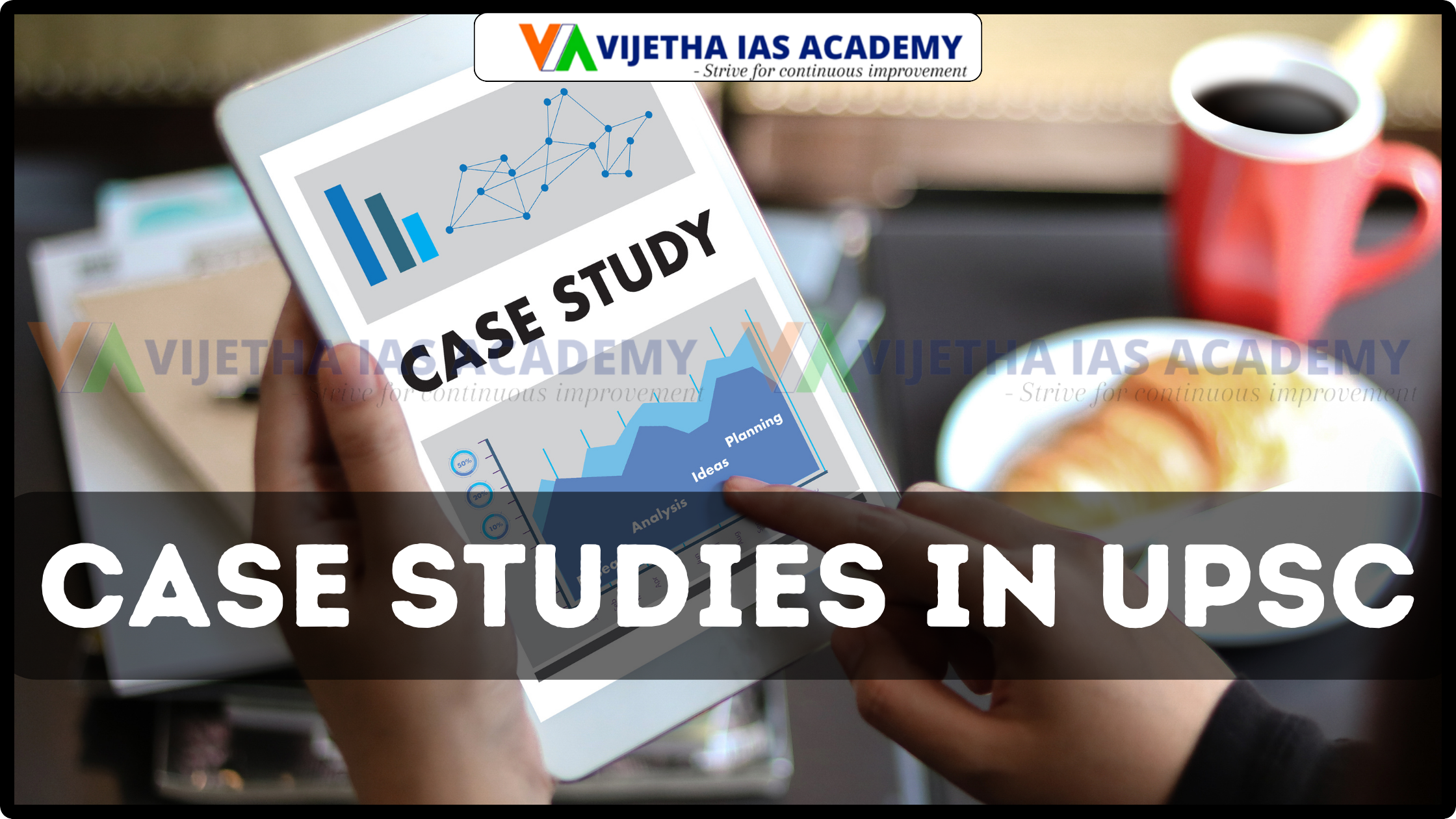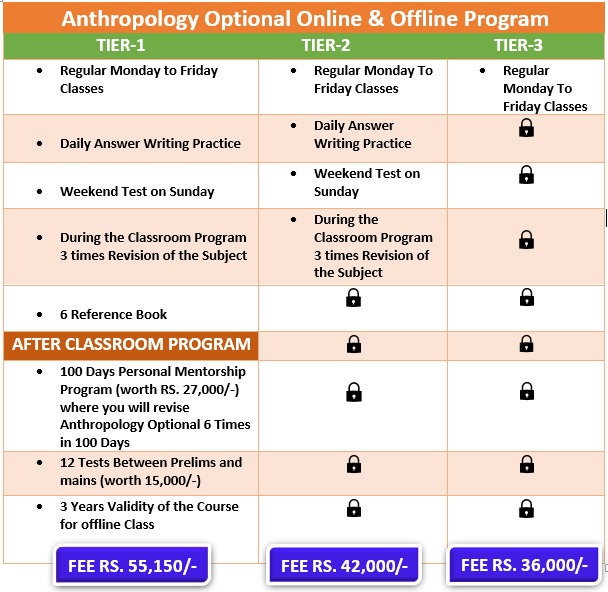
Case Studies in UPSC 2025
The Union Public Service Commission (UPSC) Civil Services Examination is one of the most prestigious and challenging exams in India. It demands a deep understanding of a wide range of subjects, critical thinking, and the ability to apply knowledge practically. One of the most effective ways to demonstrate these skills is through the use of case studies.
In this blog post, we will explore the importance of case studies in UPSC preparation, how to effectively use them in your answers, and how Vijetha IAS Academy can help you master this crucial aspect of the exam.
You can get the book here Paper 1 :- https://www.amazon.in/dp/B0D81ZJHX7
Why Are Case Studies Important in UPSC?
1. Illustrating Practical Application
Case studies provide real-world examples that illustrate how theoretical concepts are applied in practical situations. This is particularly valuable in subjects like Public Administration, Sociology, and Anthropology, where understanding the practical implications of theories is crucial.
2. Enhancing Answer Quality
Incorporating case studies into your answers can make them more compelling and insightful. They provide concrete examples that support your arguments, demonstrating a deeper level of understanding and analysis.
3. Developing Analytical Skills
Analyzing case studies helps develop critical thinking and analytical skills. These skills are essential for the UPSC examination, where aspirants are often required to present balanced and well-reasoned answers.
4. Improving Retention
Case studies are often easier to remember than abstract concepts because they tell a story. This narrative structure helps in better retention of information, which is beneficial during the exam.
Key Areas for Case Studies in UPSC
1. Public Administration
Case studies in Public Administration can illustrate how administrative theories and principles are applied in governance. For example, a case study on the implementation of the RTI Act can show the practical challenges and benefits of transparency in government.
2. Sociology
Sociology case studies can highlight social issues, cultural practices, and the impact of social policies. A case study on the social impact of reservation policies can provide insights into the complexities of affirmative action in India.
3. Anthropology
Anthropology case studies explore cultural variations, social structures, and evolutionary aspects of human societies. For instance, a case study on the tribal communities in India can illustrate unique cultural practices and the impact of modernization.
4. Geography
Geography case studies can demonstrate the practical implications of geographical theories. A case study on the management of natural disasters, such as the 2004 Indian Ocean tsunami, can show how geographical knowledge is applied in disaster management.
5. Economics
Economics case studies can provide insights into economic policies, development strategies, and their impact on society. For example, a case study on the implementation of the Goods and Services Tax (GST) in India can highlight the challenges and benefits of tax reforms.
How to Use Case Studies Effectively
1. Integrate with Theory
Ensure that your case studies are integrated seamlessly with theoretical concepts. Use them to illustrate and support your arguments, rather than presenting them in isolation.
2. Be Concise
While case studies are important, they should not overwhelm your answers. Be concise and focus on the key points that directly relate to the question.
3. Stay Relevant
Choose case studies that are directly relevant to the question. Irrelevant examples can detract from the quality of your answer.
4. Keep Updated
Stay updated with recent developments and current affairs that can be linked to your case studies. This shows your ability to connect static knowledge with dynamic developments.
Finding and Preparing Case Studies for UPSC
1. Books and Journals
Refer to standard textbooks and academic journals that provide detailed case studies. Books on Public Administration, Sociology, and Anthropology often include case studies that are relevant for UPSC preparation.
2. Online Resources
Websites and online platforms offer a wealth of information. Government reports, research papers, and articles from credible sources can provide valuable case studies.
3. PDF Compilations
Many coaching institutes and educational platforms offer PDF compilations of case studies specifically tailored for UPSC. These compilations are often curated to cover important topics and provide ready references for quick revision.
4. Vijetha IAS Academy Resources
At Vijetha IAS Academy, we provide meticulously curated study materials, including detailed case studies and their analyses. Our resources are designed to help students understand complex concepts and apply them effectively in their answers.
You can get the book here Paper 2 :- https://www.amazon.in/dp/B0D8WNCJVZ
How Vijetha IAS Academy Can Help
1. Expert Guidance
At Vijetha IAS Academy, we have a team of experienced faculty who bring extensive knowledge and practical experience to the classroom. Our experts, including NP Kishore sir, provide unique insights that enrich the learning experience.
2. Comprehensive Study Material
Vijetha IAS Academy offers meticulously curated study materials that include detailed case studies and their analyses. These resources are designed to help students understand complex concepts and apply them effectively in their answers.
3. Interactive Learning
Our interactive learning approach encourages students to engage with case studies actively. Through discussions, group activities, and presentations, students develop a deeper understanding of the subject and enhance their analytical skills.
4. Test Series and Feedback
Regular test series and personalized feedback at Vijetha IAS Academy ensure that students continuously evaluate their progress. Detailed feedback helps identify strengths and areas for improvement, enabling aspirants to refine their approach and excel in the UPSC examination.
5. Holistic Support
Vijetha IAS Academy offers a holistic support system that goes beyond classroom teaching. From mentorship programs to daily answer writing sessions, the Academy provides comprehensive support to help students achieve their goals.
Conclusion
Case studies are an indispensable part of UPSC preparation. They provide real-world examples, foster critical thinking, and enrich answers, making them more compelling and insightful. Accessing and effectively using case studies can significantly enhance your preparation.
For more information on our courses and programs, visit Vijetha IAS Academy. Join us and take the first step towards realizing your dream of becoming a civil servant with the best UPSC coaching in India.

